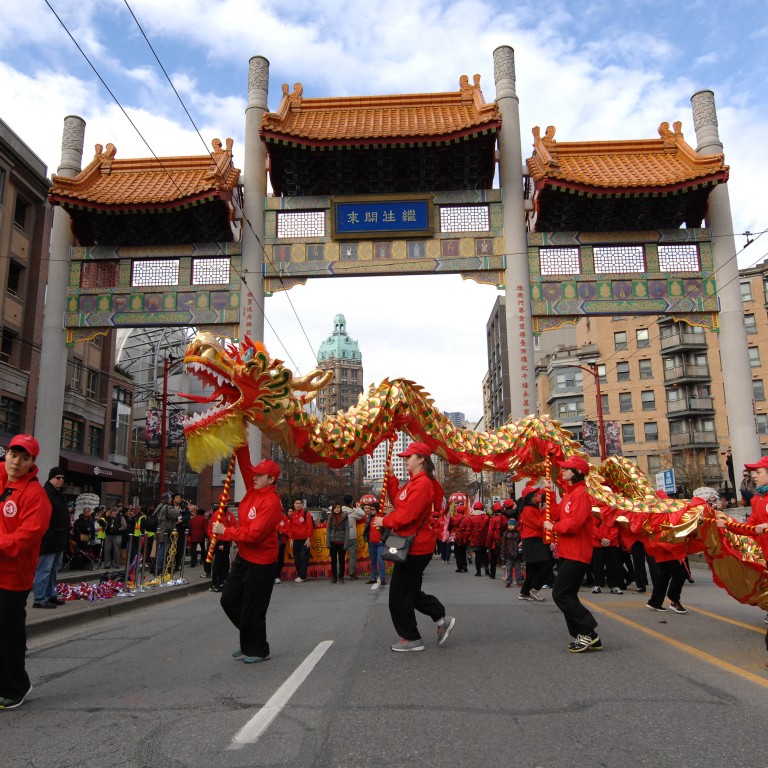
Overseas Chinese Affairs Office harms Canada with espionage, court rules
- A Federal Court judge made the ruling as she rejected the case of a former long-time employee of the OCAO, whose Canadian immigration application was rejected
- The OCAO had conducted ‘covert action and intelligence gathering’ against overseas Chinese communities, the ruling found
A Canadian court has ruled that a Chinese government agency responsible for citizens living abroad and liaising with overseas Chinese communities engages in acts of espionage that are “contrary to Canada’s interests”.
The Overseas Chinese Affairs Office – which is part of the Communist Party of China’s United Front Work Department – had conducted “covert action and intelligence gathering against [overseas] Chinese communities and other minorities around the world”, according to the ruling against a former long-time employee of the OCAO who has been trying to immigrate to Canada.
An immigration officer last year denied the application by the man and his wife on the grounds of espionage; the Chinese couple subsequently applied for a judicial review, which has now been denied by Federal Court Justice Vanessa Rochester.
Her ruling in Montreal in favour of the minister of immigration was made on January 19 and first reported by the National Post on Wednesday.
The Overseas Chinese Affairs Office and United Front Work Department have long been controversial for their activities overseas allegedly suppressing dissent against Beijing.
In remarks provided by the Chinese Embassy in Ottawa, a spokesman for the United Front Work Department said its goals were to “unite people’s hearts and minds, gather strength, actively promote harmony in relations among political parties, ethnic groups, religions, classes and compatriots at home and abroad”.
It said that the United Front sought to “unite all the forces that can be united, mobilise all the positive factors that can be mobilised, and work together to achieve national prosperity, national rejuvenation and people’s happiness”.
In her ruling, Rochester said that the OCAO “infiltrates the inner workings of the overseas Chinese communities, selectively imparts to them only what they need to know, and denies them access to information that may affect the success of the OCAO and the Communist Party of China’s qiaowu work,” a reference to overseas work.
She added that “there are reasonable grounds to believe that OCAO engages in covert and surreptitious intelligence gathering”.
It was also reasonable for the immigration officer to conclude that “that infiltrating overseas Chinese communities in Canada and engaging in covert action and intelligence gathering against them was contrary to Canada’s interests”, Rochester found.
Canadian ads blasted Hong Kong ‘radicals’. Was China’s United Front involved?
The man, surnamed Zhang, and his wife, surnamed Gao, had applied to immigrate in 2014. Their application was sponsored by their adult daughter, a naturalised citizen who came to Canada as a student.
Before retiring, Zhang had worked for the OCAO in Guangzhou for 20 years, as a computer technician and then an administrator.
The couple argued to the court that while the OCAO’s information gathering and propaganda “may be unpalatable to Canadians, it is not covert in any way”, and thus it did not constitute espionage, Rochester summarised in her ruling.
Unlike a spy agency like the CIA, whose targets were unaware of its activities, the OCAO would “openly target overseas Chinese communities and are open about the fact that they gather intelligence. The target, therefore, ought to be aware of who they are dealing with”, said Rochester in summary.
But Rochester disagreed with those positions, and said the OCAO’s activities fell within a jurisprudence definition of espionage, that is, “information gathering in a covert way or surreptitiously”.
She found that the immigration officer was also justified in believing that the OCAO’s actions were contrary to the interests of Canadian ally the United States.
Conservative vote plunged in Canada’s most Chinese electorates
The ruling cannot be appealed, and the couple’s lawyer said they did not wish to comment.
Rochester’s ruling cited academic articles about the OCAO by New Zealand researcher Dr James To, whose work was relied upon by both the couple and the crown.
In a passage from an article published in the Journal of Current Chinese Affairs in 2012 and quoted by Rochester, To wrote that overseas Chinese affairs work, had two aims: “to attract the OC [overseas Chinese] back into the fold of the Chinese nation-state, and to convey and project to them the nation-state agenda.
“Implicit in these objectives is the elimination of potential threats and rival discourses that may challenge the CCP.”

